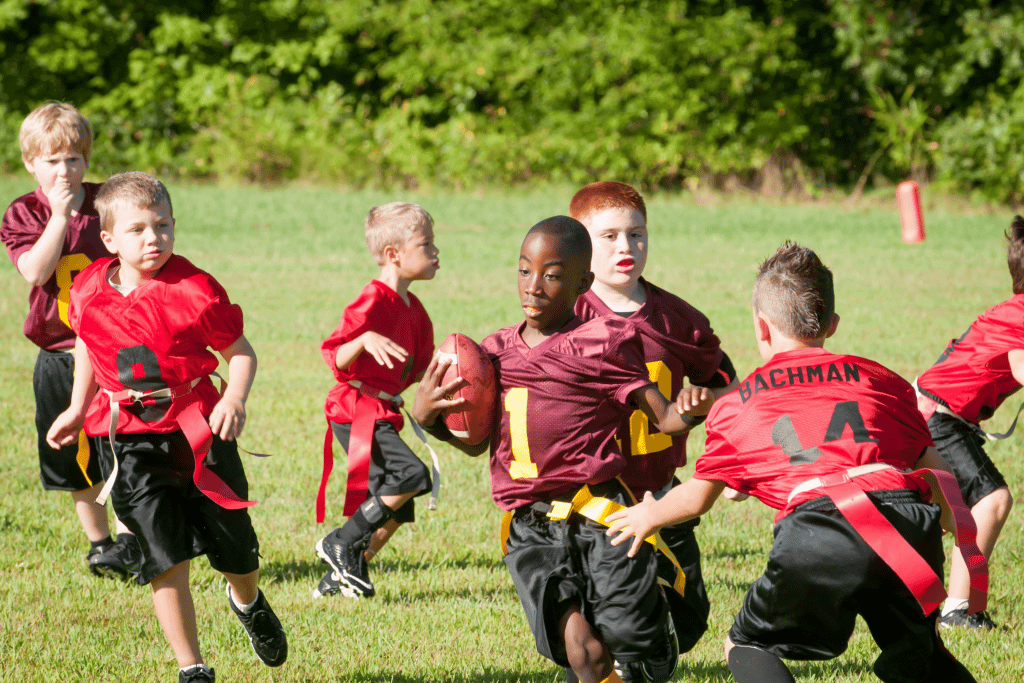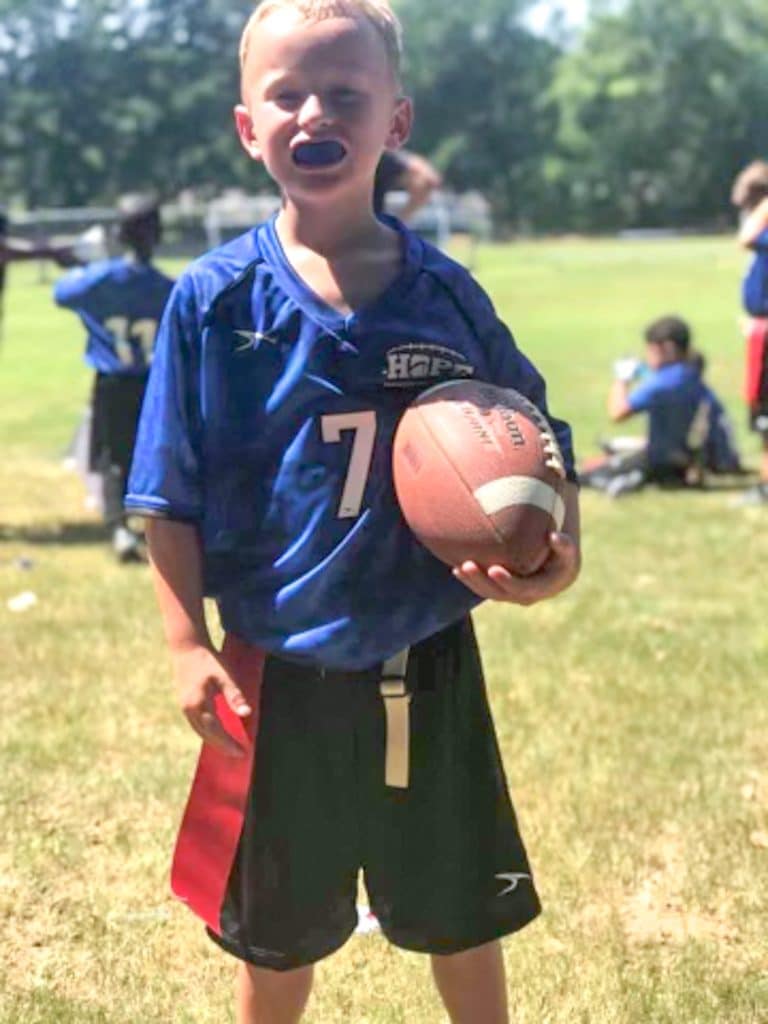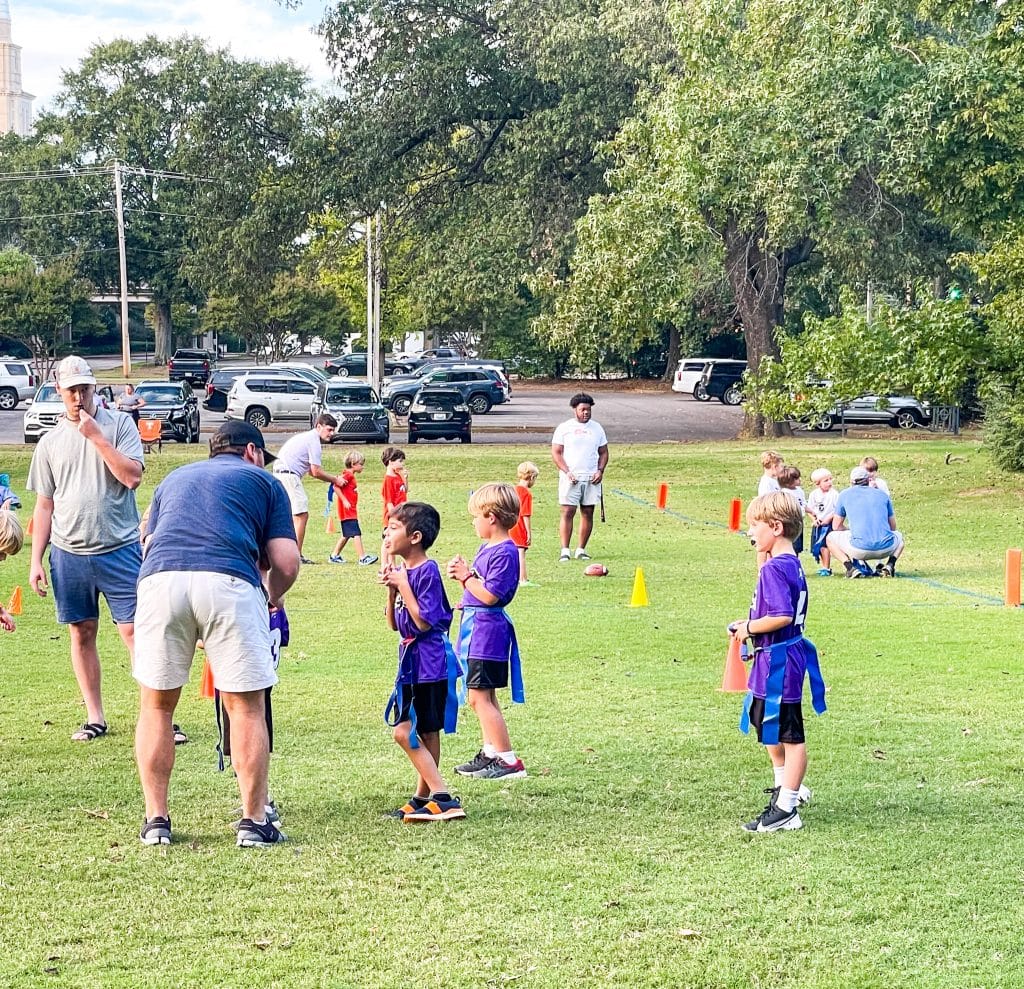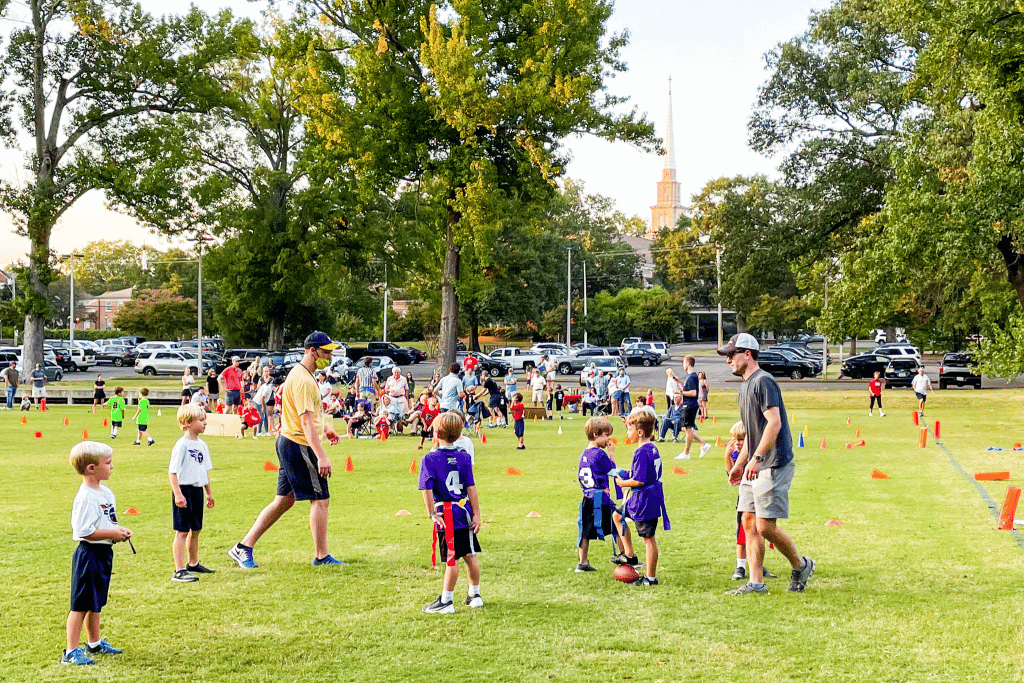“We Finish What We Started” and Other Life Lessons Learned from Flag Football
Disclaimer: Future For Football is an initiative of the National Football Foundation, created to highlight the lessons and values that football imparts. Get involved and sign up to play today by visiting Future for Football for resources, a League Locator tool, and much more.
Years ago, when my son was 5, his preschool friends all signed up for flag football. Their excitement overflowed to my son, and one day when I picked him up from school, he had the flyer advertising the team. My son insisted that he join too. I thought organized sports were dumb at age 5, but it was a low time commitment thing : 8 hours maximum of practice for the first two weeks then a 4 hour limit after that. And no weekend practices. Totally doable.
Practices went fairly well. From the sidelines I would see him running back and forth. He would participate in the football agility drills, jerking around the tiny orange cones. He was always smiling at the end of practice.

Fast forward to the first week of real football games. He refused to participate. The coach would put him in and he would literally just stand there. Sometimes tears would leak out his eyes as his teammates ran plays, trying to avoid his tiny body frozen in one place. Honestly it was brutal to watch. But guess what? In that very moment, my former-athlete self became the strictest, most competitive sports mom of all time. And I decided right then and there that my beautiful, tow-headed boy was going to learn some life lessons when it comes to signing up for “competitive” sports. Sounds harsh, and maybe it was is. But he’s now a freshman in High School and already has a NCAA recruiter with a college profile.
He’s one of the most driven, capable, naturally athletic kids, and I believe all of that started with these things:
Lesson 1 : You are going to participate one way or another
I didn’t care if he participated in the actual game (y’all he was 5, and I wanted to say, “I told you so!”) but he was part of a team and that comes with expectations. You are going to help coach clean up the cones. You are going to help your teammate put away the supplies. You are going to arrive in your uniform. You are going to do everything everyone else the team has to do.

Lesson 2 : You finish what you started
Once the practices ended, and the football games started, it was clear he was intimidated by the boys running around him. Practice was fun. Games were…fun… but a more intense fun. It wasn’t the “fun” he signed up for. He asked to quit. I said no. He asked to quit and cried. I said no and ignored the tears. There were 3 weeks left after that first match. You aren’t quitting now. When you commit to something, you do it — especially if there was a monetary investment attached.
Lesson 3 : Sportmanship is the mark of a real athlete
He might not have wanted to be at football anymore, but we talked a lot about being the cheerleader on the sidelines: yelling for his friends, encouraging his teammates to “run faster!” or “go! go! go!”, giving high fives off the field, shaking hands with the opposing team after the game (yes, they had 5 year olds shake hands and it was the cutest thing ever). Being a good sport, congratulating the winners, and admiring other athletes and their accomplishments is a taught skill. It comes from coaches and parents and is an invaluable trait to carry with you in your athletic career.

Lesson 4 : Be coachable if nothing else
After some “deep 5 year old level conversations,” I discovered my son didn’t want to play in the football games because he felt like he wasn’t good enough. The other boys were faster. They understood the rules better. He said he didn’t get it. OK! While there was only 1 game left at this point, I realized that it didn’t matter if he was the top athlete on the team or the one that understood strategies/plays. He was coachable! And man, every coach wants a kid that’s coachable. They want the athletes that are willing to listen and learn, to turn criticism into correction, to nod at the coach when they’re giving feedback, and to ask questions to clarify confusion. And after every practice, you walk up and thank your coach.
Lesson 5 : You are in it to win it
I believe kids either have an internal drive or they don’t. I don’t necessarily think it can be taught. I think it can be cultivated, encouraged. A good coach can discover and ignite that fire inside. But ultimately your child will either be a competitive athlete or not. Games/matches aren’t “just for fun” — they’re to fuel that competitive need to win. There’s always going to be a clear winner. No matter if you’re playing on a team or an individually scoring sport, someone will be coming out on top. That’s literally the entire goal of games. And boy does winning feel good.









